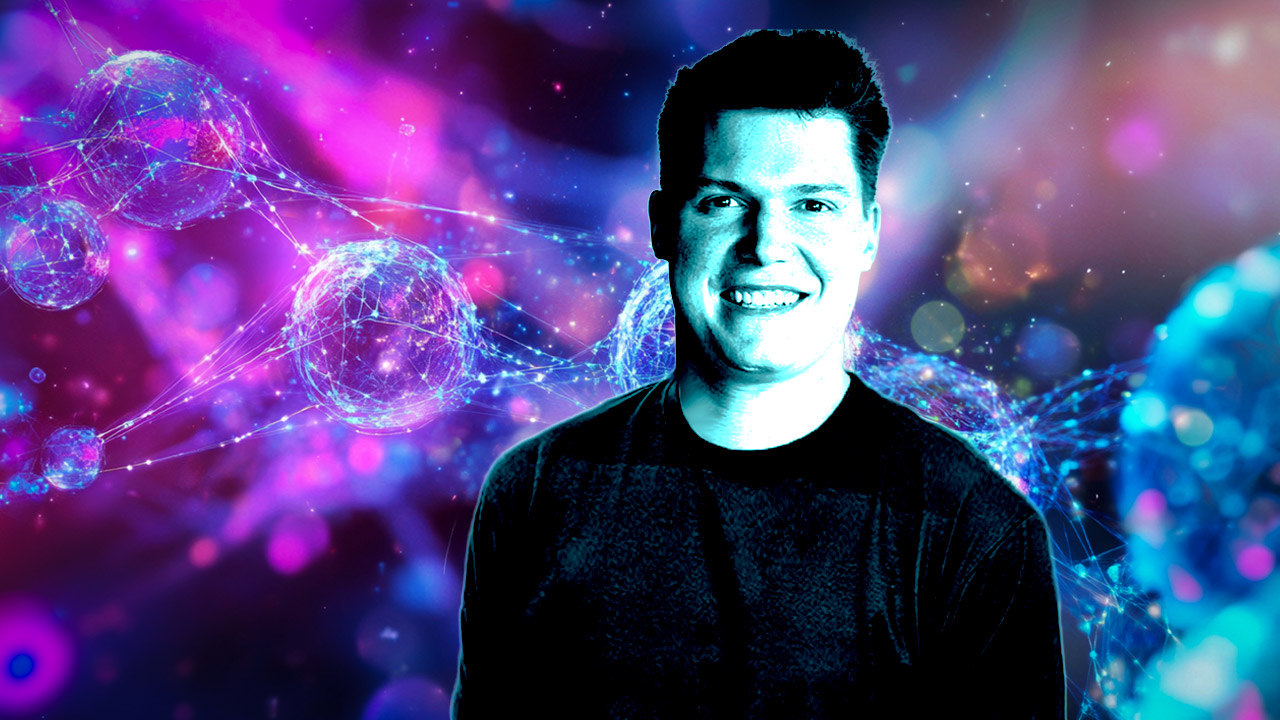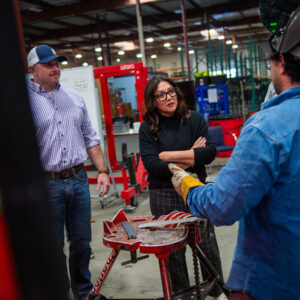Revolutionizing Biotech: Paul Kohlhaas discusses decentralized science and open innovation


In a recent episode of the SlateCast, Paul Kohlhaas, the founder of BIO Protocol, joined CryptoSlate CEO Nate Whitehill and Senior Editor Liam “Akiba” Wright to discuss the future of biotechnology through decentralized science (DeSci). Kohlhaas explained BIO Protocol’s vision for revolutionizing biotech funding and research by utilizing decentralized, open-source methods.
Biotechnology as the Substrate for Life
BIO XYZ represents more than a typical biotech initiative. As Kohlhaas explained,
“BIO XYZ stands for a movement to not be afraid of biotechnology, to like embrace it, and that it should be much more open source, back in the hands of the people.”
The concept draws from “bio-accelerationism,” echoing the AI acceleration movement in the tech world. Kohlhaas argues that biotechnology should be considered a new “substrate for life,” akin to how artificial intelligence became a new substrate for intelligence.
Kohlhaas elaborated on the fear surrounding biotechnology and genetic engineering, drawing parallels with the early fears surrounding AI.
“People are afraid of genetic engineering and new biotechnological advances. However, just as AI has seen a movement to decentralize it, we believe biotechnology should be back in the hands of the people.”
Empowering Patients and Scientists with DAOs
BIO Protocol’s core innovation is decentralizing biotech research by connecting scientists, patients, and investors through decentralized autonomous organizations (DAOs). These DAOs allow communities to fund research that addresses specific medical challenges directly. Kohlhaas highlighted VitaDAO as a successful example, stating,
“VitaDAO funded research into autophagy activators—substances that help healthy cells eliminate old cells—leading to novel drug developments.”
In this decentralized model, patients can have a more significant role, providing funds and valuable insights. “Patients often know what’s best for them,” Kohlhaas remarked, emphasizing the importance of involving patient groups in early-stage biotech research.
Bridging the Funding Gap in Drug Development
One of the most critical gaps in biotech research, known as the “Valley of Death,” is the lack of funding between initial discoveries and clinical trials. Kohlhaas explained that many promising treatments never reach the market due to this funding gap.
“On average, it costs around $2.6 billion and takes 10 years to bring a single drug to market. Most of the cost stems from failed drugs that enter the pipeline,” he noted.
BIO Protocol aims to address this by allowing DAOs to bridge this gap, ensuring that research with high potential receives the necessary funding. The decentralized approach also provides more transparency and public involvement, starkly contrasting traditional biotech, which is often conducted behind closed doors.
Decentralized Science: Addressing Ethical Concerns
Wright and Whitehill raised a key concern about the ethical considerations of decentralized biotech research. In response, Kohlhaas stressed that self-regulating systems could offer a better alternative to top-down government regulation.
“Ethical concerns are critical, but I believe in self-regulating systems that allow for open public scrutiny,”
he said, advocating for transparent, decentralized science.
Kohlhaas also pointed to the importance of transparency in drug development, referencing the controversy surrounding the COVID-19 vaccines.
“Some of the data from the first vaccine trials is locked up for 55 years. Decentralized science could prevent such secrecy by making data more accessible and putting development back into the hands of the public,” he added.
Pharma’s Growing Interest in Decentralized Innovation
Interestingly, the pharmaceutical industry itself has shown interest in BIO Protocol’s approach. According to Kohlhaas, large pharmaceutical companies are beginning to see the value in decentralized science. Pfizer Ventures, for example, invested in VitaDAO in 2023.
“Pharma needs constant innovation, and they see DeSci as a way to access more innovation while reducing the risks involved in traditional biotech development,” Kohlhaas explained.
The model also allows for faster funding and development cycles. Kohlhaas cited a project at Newcastle University, funded by VitaDAO, that went from proposal to funded research in just three weeks—an unprecedented speed in the biotech world.
The Future of Biotech: Rapid Experimentation and Collective Intelligence
As decentralized science continues to evolve, the BIO Protocol envisions a future where biotech research is conducted openly and collaboratively. The DAO model enables communities to collectively fund projects and participate in clinical trials, offering a more inclusive and efficient path for drug development.
“If there was a DAO for a new diabetic treatment, and people began allocating capital, we could organize clinical trials on a scale that was previously impossible,” Kohlhaas suggested.
In addition, Kohlhaas mentioned ongoing projects like “Pump Science,” which allows the public to bet on live experiments in animal models such as worms and flies. This approach aims to accelerate the pace of experimentation and encourage public engagement in scientific research.
BIO Protocol’s decentralized approach holds the promise of democratizing biotechnology, empowering patients, scientists, and the public alike. With the growing interest from both the scientific community and the pharmaceutical industry, decentralized science could play a crucial role in shaping the future of healthcare innovation.
#Revolutionizing #Biotech #Paul #Kohlhaas #discusses #decentralized #science #open #innovation
News plays a pivotal role in our lives by keeping us informed and connected to the world. It serves as a critical source of information, offering updates on current events, politics, economics, science, and more. Through news, we gain awareness of global issues and local developments, helping us make informed decisions in our personal and professional lives. News also fosters discussion and debate, encouraging critical thinking and perspective-taking. Moreover, it promotes transparency and accountability among governments, businesses, and other institutions. In a rapidly changing world, staying updated with the news enables us to adapt to new challenges and opportunities, shaping our understanding of the complexities of society. Ultimately, news is not just about information; it empowers us to participate actively in the world around us, contributing to a more informed, engaged, and responsible global citizenry.
Health is fundamental to our well-being and quality of life, making it an essential aspect of daily existence. It encompasses physical, mental, and emotional aspects, influencing our ability to function effectively and enjoy life fully. Prioritizing health allows individuals to maintain optimal physical fitness, reducing the risk of diseases and promoting longevity. Mental health, equally crucial, affects our cognitive abilities, emotional stability, and overall happiness. Investing in preventive healthcare through exercise, balanced nutrition, and regular medical check-ups helps in early detection of potential health issues, ensuring timely intervention and treatment. Beyond individual benefits, a population’s health impacts societal productivity and economic stability. Governments and organizations worldwide emphasize public health initiatives to address pandemics, health disparities, and promote overall well-being. Ultimately, health serves as the foundation upon which we build our lives, influencing our ability to pursue goals, nurture relationships, and contribute meaningfully to society.
Money plays a crucial role in our lives as a means of financial security and freedom. It enables us to meet basic needs such as food, shelter, and healthcare, while also providing opportunities for education, travel, and personal growth. Beyond material comforts, money facilitates social connections and experiences that enrich our lives. It empowers individuals to invest in their futures, whether through savings, investments, or entrepreneurial ventures, thereby fostering economic stability and growth. However, the pursuit of wealth should also be balanced with ethical considerations, as money can influence relationships and societal dynamics. Responsible management of finances is key to achieving long-term goals and mitigating financial stress. Ultimately, while money is a tool for achieving aspirations and fulfilling desires, its true value lies in how it is utilized to improve both personal well-being and the broader community.
Earning Easy Money in 2024: Opportunities and Considerations 💸
In 2024, the landscape of earning easy money presents diverse opportunities, albeit with considerations. The digital age offers platforms for freelancing, online trading, and e-commerce, allowing individuals to leverage skills and creativity for financial gain. Cryptocurrency investments continue to allure with potential for quick profits, yet they entail high volatility and risk. Moreover, the rise of the gig economy enables flexible work arrangements through apps and websites, offering quick payouts but often without job security or benefits. Passive income streams such as rental properties and investments in stocks or bonds remain viable, but demand initial capital and ongoing management. Amid these options, caution is essential to avoid scams and unsustainable ventures promising overnight success. Ultimately, while the allure of easy money persists, informed decisions, diligence, and a long-term perspective are crucial for sustainable financial growth and security in the dynamic year ahead.








